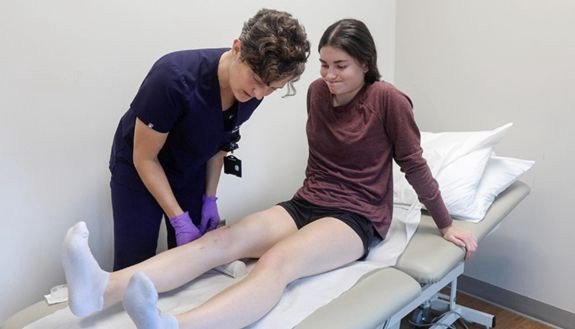ACL tears are a nightmare for athletes, often leading to years of pain and long-term complications like osteoarthritis. But a team of Duke researchers is on a mission to change that narrative. Inside Duke’s Orthopedic Research Lab, scientists are diving deep into the mysteries of the knee to discover how to prevent these debilitating injuries. Their groundbreaking work just received a major boost in the form of a new grant from the National Institutes of Health (NIH).
“There are something like 400,000 ACL tears in the US each year,” said Dr. Lou DeFrate, Emeritus Professor of Orthopedic Surgery at Duke. He noted that while surgeons have become adept at getting athletes back on the field, the long-term impact remains a significant challenge. “The biggest problem is down the road,” DeFrate explained. “Ten years after surgery, many patients develop severe osteoarthritis, effectively taking 30 years off their knees.”
Dr. DeFrate’s research aims to prevent ACL injuries altogether. “To do that, we first need to understand what puts the ACL at risk,” he said, describing the risk as “a bit of a mystery.”
The newly funded study will investigate several factors, including why women are at a higher risk of ACL tears compared to men. “We want to compare the way women walk, the geometry of their joints, and biological factors like hormone levels to see if we can solve the mystery,” DeFrate explained.
The research will also explore other potential contributors to ACL injuries, such as differences between individuals with previous tears and those without, as well as the role of fatigue in knee stability.
Ultimately, DeFrate hopes the findings will pave the way for more effective training programs to keep athletes healthy and injury-free. “We’re very excited to see if we can shed some light on this important issue,” he said. “And, in the long run, we’re helping people recover from these devastating injuries.”
Stay tuned to Bull City Citizen for updates on this promising research and its potential impact on the world of sports and beyond.












